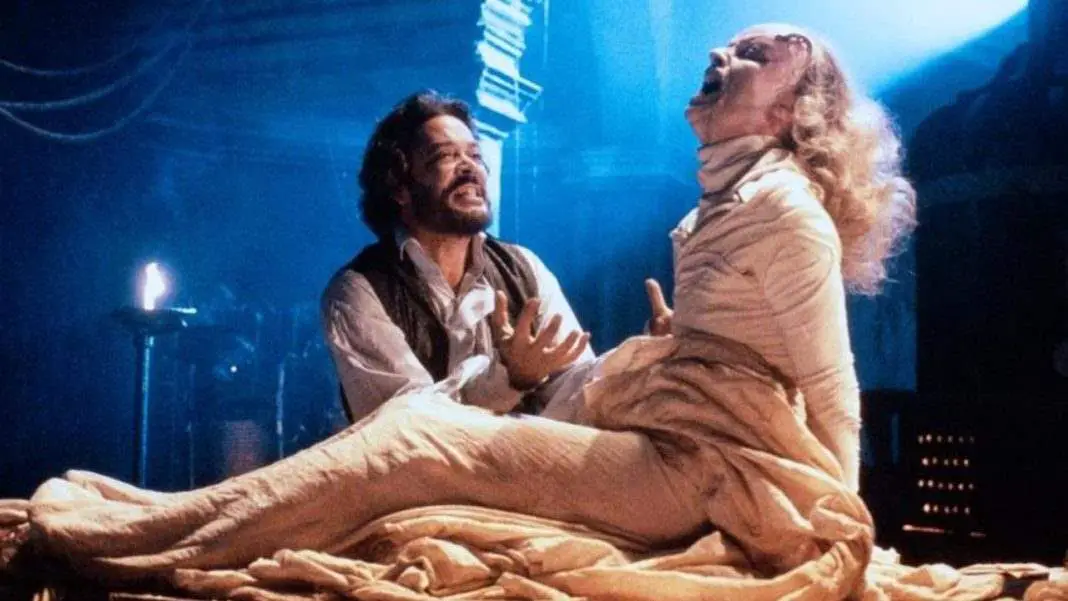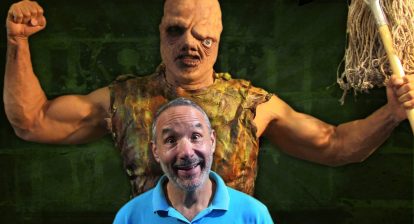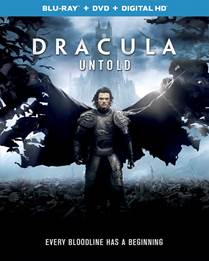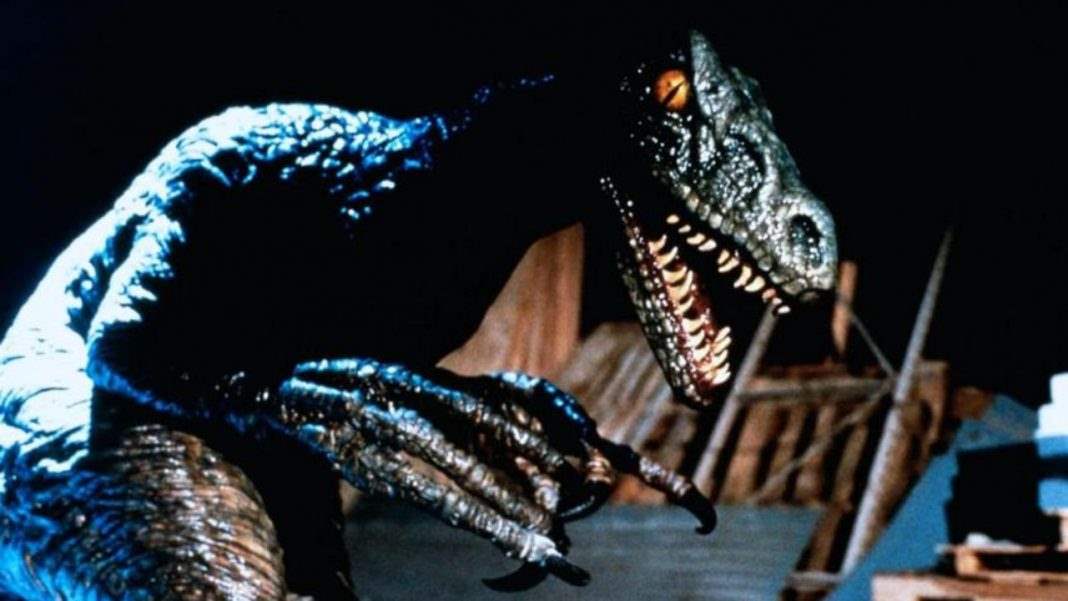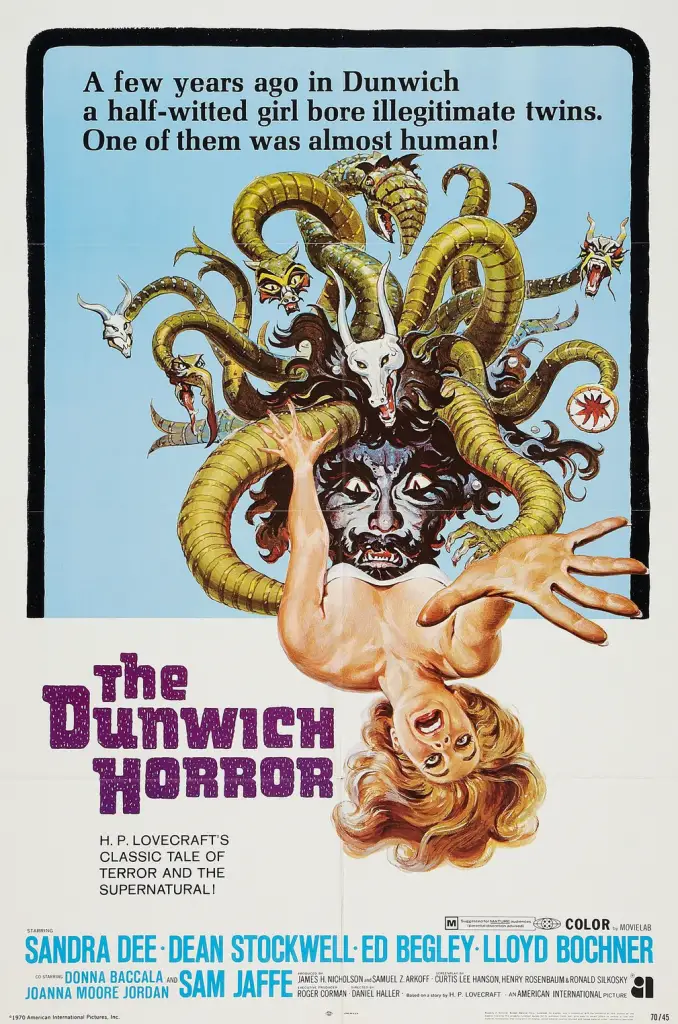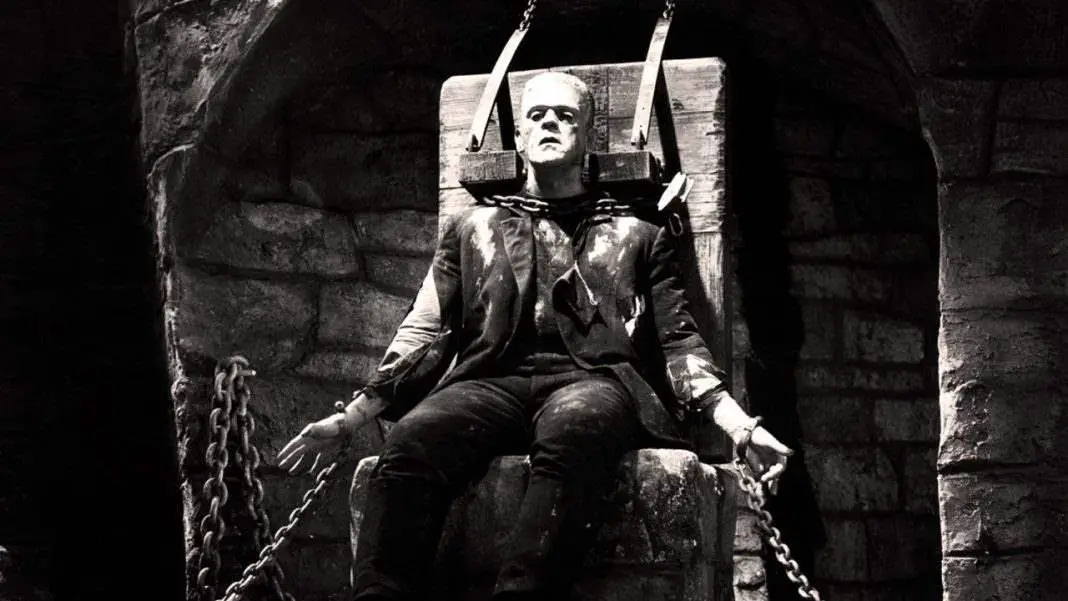Frankenstein is to this day one of the most frequently adapted fictional stories of all time. Despite its science fiction core, there’s something timeless about it. As long as death exists, the book will never not be relevant. It was one of the first horror stories ever filmed, with a short silent picture produced by Thomas Edison. After that came the classic Universal incarnation that became an immortal, cultural icon in its own right. There have been dozens of attempts in the years since. Some of them attempt to stick closer to the source material, some of them willingly stray very far. But in the pantheon of Frankenstein adaptations, there are few more surprising, or even more inventive, than Frankenstein Unbound.
The last film directed by Roger Corman, based on a novel by Brian Aldiss, Unbound is a decidedly original approach to a pillar of classic literature. It begins in the distant future. A scientist named Buchanan is working on an energy beam that will completely remove whatever it is aimed at from time and space. But in the middle of testing it, it creates an unforeseen rift in time that Buchanan is then sucked into. After being tossed through time, he finds himself in Switzerland in 1817.
And after an intro like that, it’s even more shocking to say that this is probably one of the more accurate Frankenstein adaptations out there. Yes, Buchanan is from the distant future and is in no way a part of the book, he’s basically dropped into the events of the novel. The situation he finds himself in the middle of is unfolding in a shockingly faithful way, basically everything going on when he arrives is from the book, with one major exception: Mary Shelley herself is a witness to the events.
On the surface, it still sounds like an out-of-nowhere idea to bring a character from the distant future into the mx, but Frankenstein has always been a horror story with deep science fiction roots. The juxtaposition between modern ‘90s sci-fi trends and classic gothic storytelling doesn’t actually feel out of place when you consider that that’s basically what the novel did.

One of the smartest things the film does is drop us in at the most interesting point of the novel and then, having already hit the ground running, launches into a new story from there. As accurate as this can be at points, it’s also kind of smart that it’s the only adaptation to have a clear excuse for why some things are so different from the source material. In this case, it’s because there’s a time traveller in the mix who is literally altering history.
This creates an environment where the viewer really has absolutely no idea what to expect. We know the story beat-for-beat at this point, but Frankenstein Unbound is an adaptation where anything can happen. It does this not just by dropping Buchanan into the mix but by dropping the author into her own narrative.
What still amazes me about Unbound, though, is that as much as it has the B-Movie silliness you expect from a ‘90s flick with Corman’s name on it, it’s also got a pretty spectacular cast. First and foremost, there’s the inimitable Raul Julia as Victor Frankenstein. He is pitch-perfect as the mad doctor. Like Gomez Addams, this a role that falls into his wheelhouse and one he just knocks out of the park. Then there’s John Hurt as Buchanan, one of the only actors who could sell all of the ridiculous crap he has to do in this movie.
Intermingled with the actual Frankenstein adaptation are the biopic elements surrounding its author. Bridget Fonda as Mary Shelley is not something I ever thought I needed, but I’m very glad that I got it anyway. She’s actually Mary Godwin in the film, though, as she is not yet married to Percy Shelley. Of course, there’s an unexpected love triangle, what with a time travelling super-scientist thrown into the mix.
 The movie gets crazier and crazier as it goes, as well it should. For all of its inherent cheesiness it actually strikes a good balance between classic Frankenstein moments and new, intensely weird sci-fi stuff. The Monster, for example, is fairly faithful to the book. He’s a smart, cunning, tragic figure—and his eyes are so cool, even if they don’t make any sense at all—but he’s doing things that you’ve never quite seen the Monster do before. Chief among them being a third-act showdown through the timestream until he arrives on a snowy, isolated mountain in the distant future.
The movie gets crazier and crazier as it goes, as well it should. For all of its inherent cheesiness it actually strikes a good balance between classic Frankenstein moments and new, intensely weird sci-fi stuff. The Monster, for example, is fairly faithful to the book. He’s a smart, cunning, tragic figure—and his eyes are so cool, even if they don’t make any sense at all—but he’s doing things that you’ve never quite seen the Monster do before. Chief among them being a third-act showdown through the timestream until he arrives on a snowy, isolated mountain in the distant future.
But even then that feels in keeping with the novel, in which Victor chases his creation into the arctic until he basically freezes to death and the Monster is left alone.
That’s the beauty of Frankenstein Unbound. It’s going to take the seed of an idea that sounds like the least accurate version of this story, and then it’s going to tell you that story in the most bizarrely accurate way possible.
